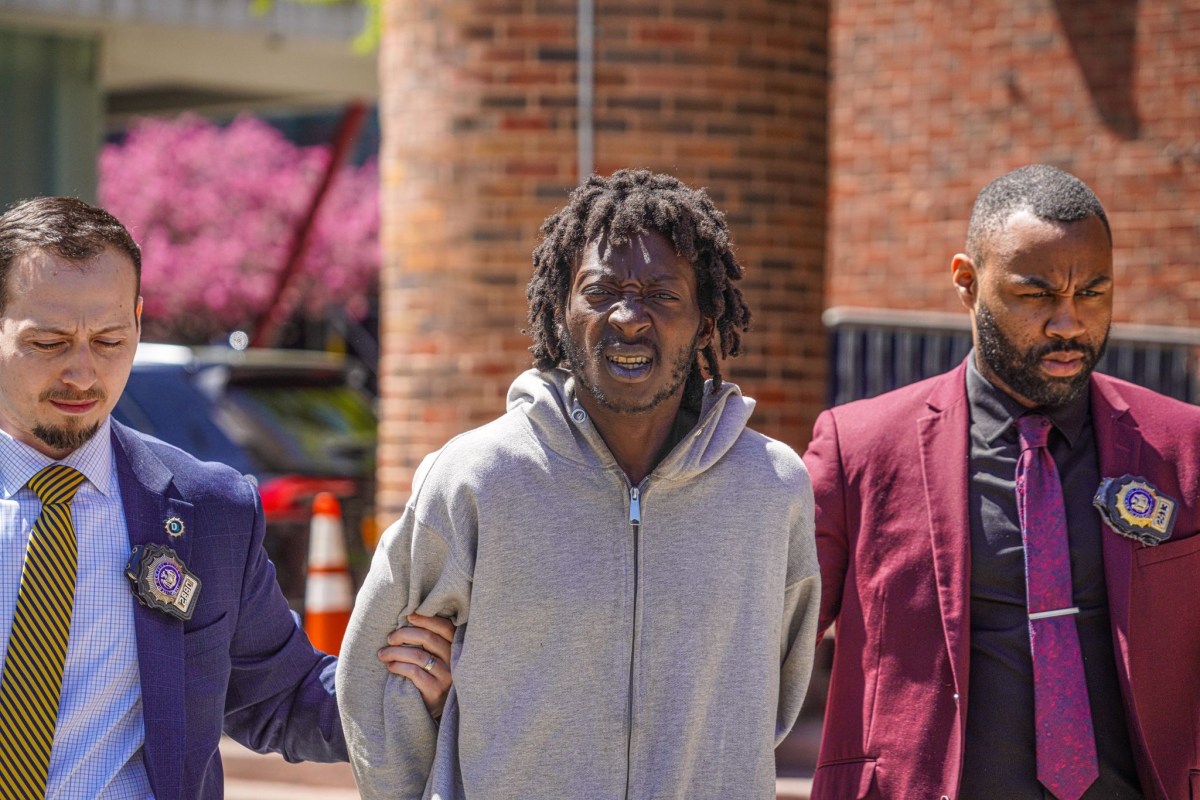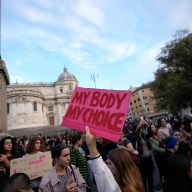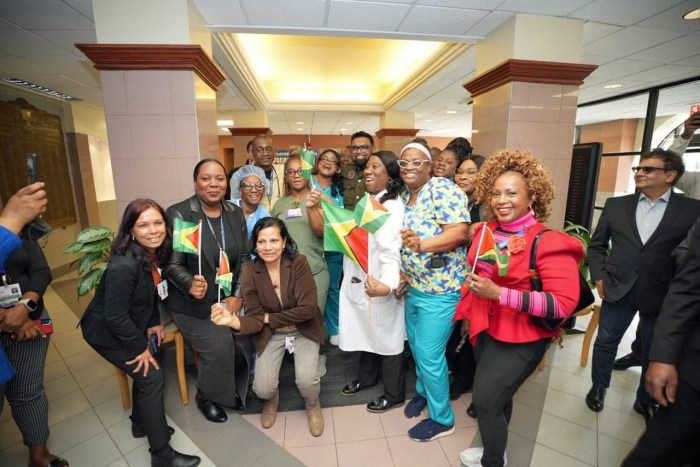TORONTO – On his hit single “Best I Ever Had,” Canadian rapper Drake bragged that he had “buzz so big, I could probably sell a blank disc.”
And in a way, he has done just that.
The Toronto hip-hop star has had made a dizzying ascent in the rap world – and he’s done it without having released a proper album.
He has three top 20 singles in the U.S. and two Grammy nominations, he’s collaborated with Jay-Z, Kanye West and Eminem, and he even had to shoot down rumours of a relationship with Barbadian pop star Rihanna (poor guy).
In a matter of months, he’s become one of Canada’s most prominent hip-hop exports ever, and one question remains: How did the former “Degrassi” star go from the cosy environs of Toronto’s wealthy Forest Hill enclave to hanging around with Lil Wayne?
“You know what, I’ll tell you honestly: it’s the hustle and the drive,” Toronto hip-hop artist Kardinal Offishall told The Canadian Press in a recent interview.
“I’ve seen Drake from a few years ago to where he’s at now. It’s not just because Lil Wayne picked him up or because he had an Internet buzz. I’ve seen him literally give it everything that he had, 150,000 per cent, in order to make it.”
And make it he has.
Born Aubrey Drake Graham in Memphis to a black father and a white Jewish mother, Drake moved to Toronto as a child after his parents divorced.
He got his big break in 2001 at the age of 14 when he was cast on “Degrassi: The Next Generation” as Jimmy Brooks, a high-school basketball star who eventually surrenders his hoop dreams after being shot in the back, leaving him confined to a wheelchair.
But co-stars remember Drake already being lost in rap-star reverie.
“He’s been working on it forever, the longest time,” said Stacey Farber, who co-starred alongside Drake for seven seasons.
“Even when we were in high school, I remember he was always working on his music. Always.”
In 2006, Drake self-published his first mixtape, “Room for Improvement.” That led to “Replacement Girl,” his collaboration with Virginia R&B crooner Trey Songz that was the lead single on Drake’s 2007 mixtape, “Comeback Season,” and which caught the attention of New Orleans rapper Lil Wayne.
Soon, Drake was tucked under Weezy’s wing, riding shotgun with a rapper on the cusp of superduper-stardom.
In 2008, Lil Wayne’s “Tha Carter III” went platinum in a week and went on to sell more copies than any other album that year. In September ’08, the rapper stepped onstage at the MTV Video Music Awards for a collaboration with Leona Lewis and T-Pain.
Shirtless and behind heavy dark shades, Lil Wayne crept down a staircase and rapped a verse that actually wasn’t his. Lines like “I’m losing my mind like: ‘Damn where my roof just go?’/ Top slipped off like Janet at the Super Bowl” actually belonged to Drake, then still a mostly unknown MC.
And when Lewis launched into the song’s hook (from Nina Simone’s “Please Don’t Let Me Be Misunderstood”), Lil Wayne gave credit where it was due, rasping overtop: “Drizzy Drake, I love you boy!”
A few months after that high-profile endorsement, Drake dropped his next mixtape, “So Far Gone,” to almost unprecedented buzz for an emerging artist.
Drake was Weezy’s protege and showed the influence of Wayne’s mischievous, meticulous rhymes. But he arguably owed more to Kanye West, with his exploration of the space between swagger and self-criticism and his unfailing ear for melody.
The mixtape’s swooning single “Best I Ever Had” was a perfect showcase, with Drake crooning the ballad’s hook and rapping its intermittently sweet lyrics (“Sweat pants, hair tied, chillin’ with no makeup on/ That’s when you’re the prettiest, I hope that you don’t take it wrong”).
The song went to No. 2 on the U.S. charts. Drake, still without a record label or official album, became the target of a major-label bidding war (Lil Wayne’s Cash Money Records, under the Universal umbrella, ultimately won).
Drake began crafting his album debut, “Thank Me Later,” scheduled for the first quarter of 2010.
Meantime, his songs continued to get major airplay on both sides of the border.
“Successful,” a Kanye-like meditation on the disappointments of fame and money that features guest turns from Songz and Lil Wayne, was Drake’s next single, reaching No. 17 on the charts. And “Forever,” which featured West, Lil Wayne and Eminem, came next, reaching No. 8.
What, exactly, was so immediately captivating about the Canadian rapper?
“Drake knows how to write records that are about big ideas,” Washington rapper Wale said in a telephone interview. “Look at the names of his songs: ‘Fear,’ ‘Forever,’ ‘Winner.’ Those are big ideas.”
Toronto-raised hip-hop artist K’naan was more blunt in an interview with The Canadian Press: “He’s very good.”
As his tunes shuttled up the charts, Drake was afforded something of a priority pipeline in the U.S. press, with major media outlets – MTV in particular – providing regular updates on what Drake was up to, including his summer basketball injury, potential romantic entanglements (the New York Post reported breathlessly about Drake’s supposed kiss with Rihanna in a bowling alley) and ongoing work on his debut.
In December, he was nominated for two Grammy Awards – for best rap song and best rap solo performance for “Best I Ever Had.” Sitting in the audience at the nomination telecast, he seemed appropriately stunned.
“I have to say, you know, it’s definitely an honour – I haven’t even put out my first album,” he said. “Being a kid from Toronto, I’m just proud, man. I know my mom’s at home, buggin’ out. I’m just glad to be here.”
His friends took note of his rapid rise, too.
“I went for dinner with him in L.A. . . . and his bodyguard was there and his tour manager and he had a driver,” Farber recalled with a laugh. “It was so surreal. But I think it was meant to happen. It seems totally natural being with him and knowing that’s what his life is like now. It’s not even that shocking.”
For others, however, it all seemed to happen a bit too fast.
“You know, I’d like to see what the actual outcome is because it took so long releasing his project that it feels like an established artist versus a new artist,” New York rapper 50 Cent told The Canadian Press in an October telephone interview.
“It’s been months since his records have been coming out. If you spend that kind of marketing dollars on him, it’s gonna feel like he’s a ringer.
“I mean, how many singles do you have before your record actually comes out?”
That suggestion – that Drake’s success is owed to the music-industry marketing machine – rankled his more supportive peers.
“I know a lot of young artists in Canada would like to have (Drake’s) position and feel a bit jealous, so they’re making all kinds of excuses about how he’s brandable and marketable and he’s hanging out with Lil Wayne,” K’naan said.
“But let’s just acknowledge he’s good. He’s got great lines, and so I think that that’s probably his biggest thing. He’s got charisma and he’s actually good at what he’s doing. And it works out here. It really works. He’s on the radio every five minutes (in the U.S.). It really does get across for him.
“I wish him the best.”
Added Wale: “I just think that the dude is like amazing. I think that he’s made a great name for himself and he’s going to continue to make it.
“He’s one of the people that’s going to be able to create a nice little lane in the genre and be at the top.”
















